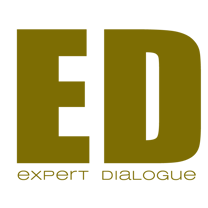Die Healthy
A Science of the Spirit


In ancient China, a patient didn’t pay the doctor when they had to visit him for an illness that had effectively developed. On the other hand, the doctor would regularly see his patients to ensure that they were healthy, and only on these occasions would he receive compensation. Thus, he was considered as having failed in his mission if he had not prevented an illness and in consequence, he would receive no payment. One would know if a doctor was a bad doctor if a big line had formed at his door. If this protocol is a bit outdated today, China’s traditional medicine is still based on the same principles: prevent and circumscribe the causes of an illness while determining disparities and maladjustments. Those are assessed through the observation and the linking of various criteria such as weather conditions, emotional conditions, lifestyle, personal and family history, and finally astrological configuration. Each piece of information has equal importance in the making of a personal and made to measure “program” of dietary hygiene which will, if needed, include various plants and concoctions. This systemic approach is at the core of the Chinese way of thinking. It doesn’t observe individual elements but rather the principles that command the relation between these elements. If you ask a Chinese farmer the shortest way to the city, he will observe the weather, the flight of the birds in the sky and the shape of the clouds, the way you are dressed and the shoes you are wearing, your means of transportation and what you carry, and then only, he will state if you’d better go through the fields or the mountain.
Now, if we examine the principles that rule our health systems and our relation to medicine in our western cultures, one can reasonably feel quite unsettled if not frankly terrified. For the more access to information we have and the less we know. As opposed to physics or chemistry, it seems clear that medicine is not a “pure” science, meaning that even sophisticated tools may give varying results depending on circumstances. We also know that medical truths do not necessarily remain consistent through time. Thus, the unit of measurement that is used to establish positive response to the HIV test, varies from a country to another. Since 2015, the recommendations on the levels of cholesterol have simply been ruled out by the highest institutions in the USA (Health and Agriculture departments). It has taken years, on the other hand, to make a clear relation between consumption of tobacco and certain diseases. How can we rely on our doctor’s judgment when we know he has been bombarded by often random information from pharmaceutical laboratories, and thus from the very beginning of his training?
A few years ago, studies made in Thailand showed that all sorts of doctors, from the most qualified to simple quacks, were just as efficient if they had the basic qualities of heart and mind that could encourage their patients to find their own healing powers. According to America’s most consulted medical guide (the Goldman Cecil Medicine), the Art of Care and Comfort, guided by centuries of sensible practice is the corner stone of medicine. Without these basic human qualities, as a matter of fact, the practice of Medicine remains random and threatens to be just another business, a business that hasn’t saved Steve Jobs and others, despite their colossal wealth, from a fatal condition at a relatively young age. There is certainly no religious or moral consideration to retain from these facts, other than the idea that neither money nor health are exact sciences. And whoever tries to convince you otherwise is most likely trying to sell you something.
